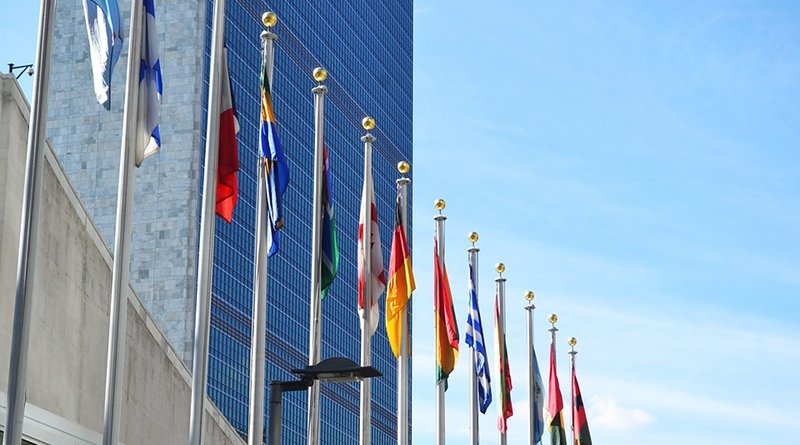Name That Foreign Policy Legacy – OpEd
By John Feffer
In re-electing President Barack Obama, voters decisively rejected the Republican version of economic reform. Obama is already angling to use his mandate to solve the nation’s fiscal woes by letting the Bush-era tax cuts expire for the rich.
But the election delivered no foreign policy statement. Mitt Romney and Obama rarely disagreed on anything that had to do with other countries.
Iran? Romney promised more of the same. Israel? Even more. Drone warfare? What drones?
There’s no reason to assume that Obama will adopt a bold new approach to foreign policy in his second term.
But never mind that, pundits and journalists are now playing their favorite post-election game: pumping up the legacy.
“For any reelected president, the notion of a foreign policy legacy has a certain allure,” Josh Gerstein wrote in Politico. “It offers a chance to leave a lasting global imprint — and an alternative to the daily interference of Congress on domestic issues.”
The New York Times’ editorial writers drafted a short list of options for Obama to choose from over the next two years — nuclear arms cuts, an accelerated withdrawal from Afghanistan, negotiations with Iran, a two-state solution for Israel and Palestine — before the next election season turns even the boldest president into a play-it-safe standard-bearer for his party.
I’m sure Obama would treasure a foreign policy legacy, like being known as the President Who Ended the Arab-Israeli Conflict or the President Who Froze Global Warming in Its Tracks. But let me inject a dose of realism into this debate on legacy. After all, Obama himself is a certified realist.
First of all, the idea that Obama can chart a foreign policy path without Republican interference is wishful thinking. On the first day of his first term, he tried to close the Guantanamo prison only to come up against a Republican wall of resistance. He pledged to reduce nuclear weapons but GOP lawmakers made an arms control agreement with Moscow contingent on an extravagant modernization of the very nuclear weapons complex that should have been going on the chopping block. Republican-controlled House committees — Energy and Commerce, Natural Resources — block the White House from addressing climate change.
Just this year, Obama tried to negotiate a prisoner exchange with the Taliban — the first step in what might have been more wide-ranging negotiations — but the Republican Congress balked.
Obama can, of course, travel wherever he pleases and talk to whomever he wants. But if the discussions result in a treaty, the Senate must approve it by a two-thirds vote — and the Democrats don’t have that margin of control. If the discussions result in an agreement that costs any money, then the House Appropriations committee has to weigh in. And that brings the Republicans back into the loop.
But let’s assume for a moment that Obama can overcome these political obstacles. Is he willing to invest the political capital to do so?
The record so far suggests that he likes to make important game-changing speeches — on re-engaging the Muslim world, on nuclear abolition — but he isn’t willing to put in the monumental effort to implement these visions.
The Obama administration prefers to “lead from behind” rather than step boldly in front of everyone else. It makes the home front — think health care reform — the top priority.
The one major diplomatic accomplishment of his first term — the rapprochement with Burma that culminated in Obama’s recent trip there — is emblematic of this more modest approach to foreign policy. The negotiations with a junta making a slow transition away from authoritarianism have taken place rather quietly, in close coordination with allies, and away from the main stage of global affairs.
Under Obama’s leadership, Washington is finally coming to terms with the world’s multipolarity. The notion that one man — or one country — can change this multipolar world is fast becoming antiquated.
Getting Americans to accept this new reality may ultimately mark Obama’s foreign policy legacy.
John Feffer is an Open Society Fellow for 2012-13 focusing on Eastern Europe. He is on leave from the Institute for Policy Studies, where he co-directs the Foreign Policy In Focus project. www.fpif.org

